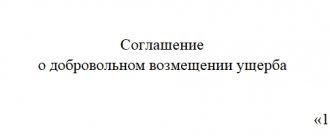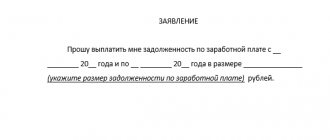Payments and benefits paid after the death of a person
- Children of the deceased, including adopted children. Paid until they reach the age of 18 (up to 23 years if the child is a student). After the death of a stepfather or stepmother, payment is assigned only if the deceased raised the children for more than 5 years.
- Full-time students.
- Widows who have reached retirement age or are disabled.
- To the disabled parents of the deceased.
- Minor grandchildren, brothers and sisters with disabilities.
- To the family of a missing person.
- Family members who decide to take on the responsibility of raising and maintaining minor (under 14 years old) children and relatives of the deceased, who have the opportunity to receive a survivor’s pension.
We recommend reading: Reinstating the statute of limitations
What benefits are available to WWII veterans?
According to Articles 13 - 19, 23.1 of the Federal Law “On Veterans”, every participant in the Great Patriotic War must receive state social support.
Mandatory social support package for veterans paid by the state:
- Monthly pension for a WWII veteran. The size depends on the group and the level of participation in hostilities.
- Each participant in the Patriotic War must be provided with living space, regardless of his property status, and this right is exercised once in his life.
- Reimbursement of 50% of all expenses for utilities:
— rental and maintenance of property;
— payment for major repairs of property, provided that the veteran lives in an apartment building;
— costs for electricity, gas and water supply;
— sewer fees;
— expenses for the purchase of firewood, coal and other types of fuel in the absence of central heating.
- The right without another installation of a landline telephone.
- Privileges for joining non-profit organizations.
- Free medical care, including in-depth examination at a dispensary. A WWII participant reserves the right to remain at the assigned medical institution in which he was observed before retirement.
- Reimbursement of funds spent on the production of various classes of prostheses, except dental ones, or production on a free basis.
- Without regular service in various social, entertainment and shopping establishments.
- An advantage in placement in nursing homes and assistance provided by social workers at home.
Selected benefits for WWII veterans
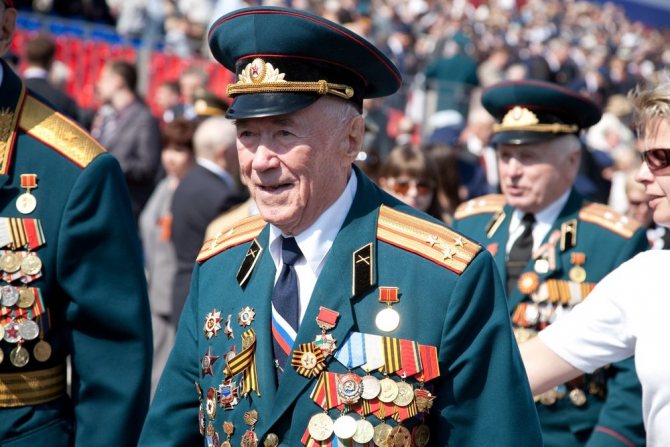
The Federal Law “On Veterans” provides additional benefits for certain categories of WWII participants. A veteran who has the status of a war disabled person is entitled to:
- obtaining vocational or additional education paid for by the employer;
- increasing free leave, if necessary, to 60 calendar days;
- free trip to the sanatorium;
- replacement of motor vehicles after 7 years of ownership or reimbursement of material value upon registration of all mandatory medical indications before January 1, 2005.
Participants in combat operations have the opportunity to:
- receive professional education paid for by the employer;
- get a ticket to the sanatorium.
Siege survivors and those who took part in the construction of objects of strategic importance, if they have a medical referral, can receive a voucher for sanatorium treatment without waiting in line or paying for it.
Monthly payments
Depending on the category of the Great Patriotic War veteran, the following additional benefits are received in addition to the basic pension:
- disabled war veterans - 4,795 rubles;
- WWII participants - 3,596 rubles;
- blockade survivors and battle participants - 2,638 rubles;
- veterans participating in the construction of strategic facilities serving air defense – 1,439 rubles.
These amounts also include the price of a set of social services. If you need to maintain this service, the cost will be deducted from your monthly benefit.
Also, participants in the Great Patriotic War can simultaneously receive pensions based on length of service, military service and disability. The amount of pensions can exceed the usual social pension by 2.5 times.
WWII veterans in various regions are provided with free travel on public transport or its cash equivalent. In the Moscow region, a pension of no less than 15,000 rubles is assigned; if the payment does not reach this amount, then additional payments are made.
Social benefits for funerals through the Pension Fund of Russia
The legislation of the Russian Federation guarantees to persons involved in the funeral of the deceased material and other assistance, and to each person after death a burial carried out in accordance with his lifetime wishes. The Federal Law “On Burial and Funeral Affairs” dated January 12, 1996 No. 8-FZ establishes the relations arising in this regard, the conditions for the appointment and payment of financial assistance, as well as the provision of other assistance. This law establishes the possibility of receiving benefits from the state for the funeral of a deceased citizen, the amount of which as of February 1, 2021 is 5,701.31 rubles .
Groups of WWII veterans who are entitled to benefits
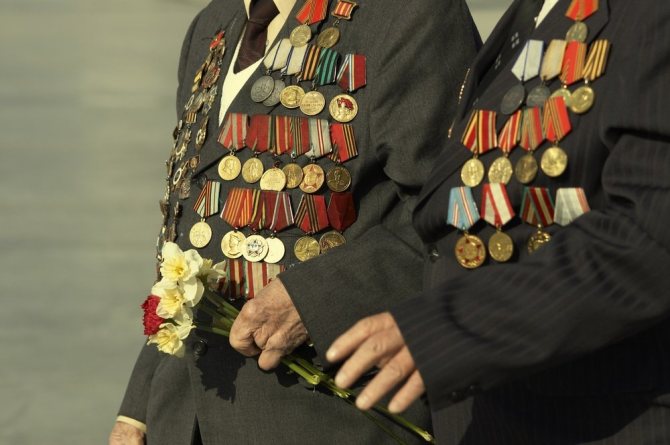
Federal Law No. 5-FZ of January 12, 1995 defines groups of WWII veterans. The main group of beneficiaries of the Second World War:
- soldiers who participated in battles for the forces of the Soviet army;
- law enforcement officers and the NKVD;
- hired citizens who served in the army;
- intelligence officers;
- employees of defense enterprises and information bureaus;
- military personnel who carried out mine clearance, as well as participated in special operations to combat enemy landings or the nationalist underground;
- citizens who worked for more than six months in the interval from 1941 to 1945 in the armed forces of the Soviet army, but did not participate in combat battles;
- participants in the battles for the liberation of Stalingrad and who received a medal “for the defense of Stalingrad” and who have been disabled since childhood, acquired during the fighting of the Second World War;
- residents of besieged cities who have the insignia “Resident of besieged Leningrad” or any other besieged city;
- air defense employees who carried out the construction of defensive structures and other objects of a strategic nature;
- rear employees who worked for more than six months during military operations and received “home front worker” medals. According to Article 20 of the Federal Law of January 12, 1995 No. 5-FZ, for this category of WWII veterans, the social package and various benefits are formed by the local administration and payments are made from the budget of the constituent entities of the Russian Federation.
Payments for relatives of WWII veterans
The benefit package of a deceased World War II veteran goes to:
- minors under his guardianship;
- the spouse of a veteran, after his death, is assigned the status of a deceased spouse until they enter into a new marriage;
- parents.
Relatives have the right to receive all benefits and benefits. The state also helps in carrying out burial events for deceased WWII participants.
Who are considered WWII veterans, and who are considered equal to them?
Attention! The legislator includes a specifically established list of citizens as veterans:
- persons who took part in hostilities and served in the ranks of the regular army,
- persons who were in military schools, rear units during the war,
- partisans and members of underground wartime organizations,
- military personnel and employees of internal affairs bodies who performed official duties during the war, including in the rear,
- intelligence officers, counterintelligence officers and other participants in the war who carried out missions at the front and in the rear,
- hired citizens who served in military units,
- residents of besieged Leningrad who worked in factories, factories and institutions, who received the award “For the Defense of Leningrad”, as well as persons awarded the medal “Resident of besieged Leningrad”.
The complete list of persons who may fall under the category of veterans is determined by a separate Federal Law “On Veterans”.
In addition, in addition to the veterans themselves, assistance is provided for their family members. This possibility is also provided for by the Federal Law “On Veterans”. However, such assistance involves a number of restrictions and may not be offered to every person who is related to a war veteran.
Such family members are recognized only by those persons who are considered disabled and were previously dependent on a deceased veteran, or on other grounds provided by law.
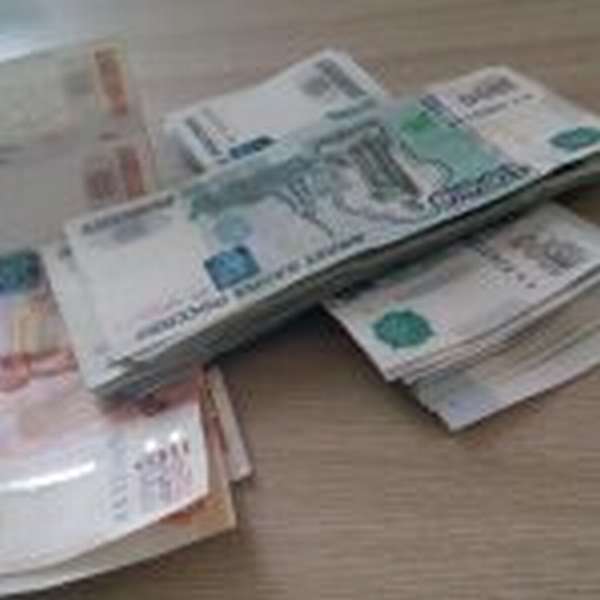
Free legal assistance for pensioners
How the social supplement to pension is calculated, read here.
Is it possible to inherit your husband’s pension after his death? Read the link: https://novocom.org/otvety-na-voprosy-chitatelej/mozhno-li-unasledovat-pensiyu-muzha-posle-ego-smerti.html
Who is exempt from paying state duty
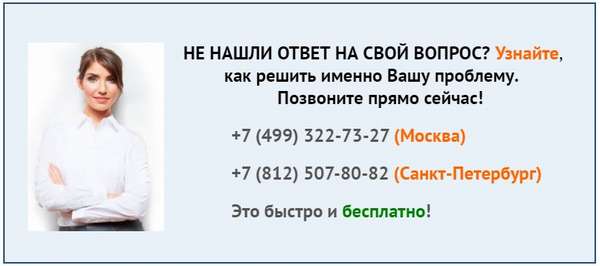
Important! Speaking about the abolition of the obligation to pay state fees when applying to government bodies, the following persons should be identified as having this privilege:
- persons who inherited a share of the housing of a deceased person, provided that before and after the death of the owner they continue to live in the specified residential premises,
- persons receiving an inheritance under the age of eighteen or recognized as mentally ill and in need of guardianship,
- heirs of citizens who died as a result of an industrial accident, and the company provided life insurance to employees in such situations.
Accordingly, when the heirs do not fall under any of these categories, despite the fact that they receive the property of a deceased war veteran, they cannot be released and the obligation to pay state duty cannot be abolished.
It should be remembered that even if the state duty is paid, no tax fees will be collected, since the Tax Code of the Russian Federation does not provide for such in the event of registration of an inheritance, regardless of whether the property is expressed in monetary or in-kind equivalent.
Watch the video. How to receive compensation for a monument to a WWII veteran:
Who is responsible for the ownerless graves of Great Patriotic War veterans?
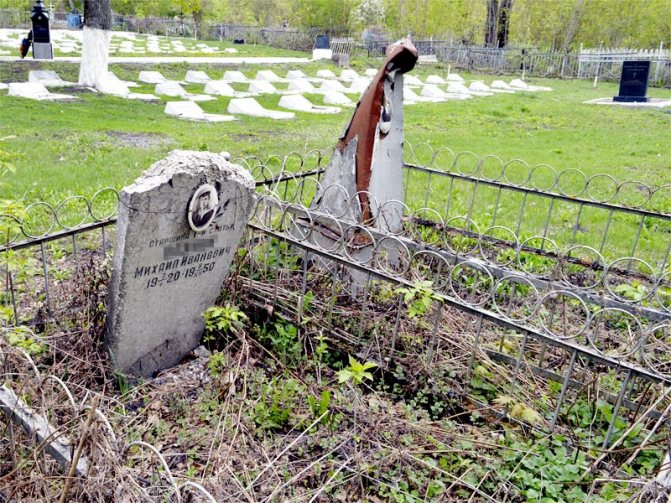
The city cleanup days have ended and the streets are being decorated for Victory Day. But it’s painful and difficult to realize that thousands of old graves remain unkempt in the cemeteries of the Penza region! The fact that they belong to veterans of the Great Patriotic War is indicated only by the lopsided and faded stars on the monuments. Activists, social activists and simply concerned citizens tidy up mass graves, mow the grass and wash gravestones. But single graves remain without proper care...
Sad procedure
By law, the grave must be looked after by relatives or loved ones of the deceased. If there are none, it takes at least another five years to officially declare the burial site abandoned. “This procedure is quite complicated,” Alexander Samoilenko, head of the department for organizing burials in municipal cemeteries of the Penza housing and communal services department, emphasized in an interview with an ML correspondent. “First, the intelligence service must identify the grave, which is in unsatisfactory condition. Grave structures, fences, and monuments must have obvious signs of destruction.” After this, the Penza housing and communal services department creates a commission that goes to the site and draws up an act recognizing the burial as unkempt. Next, a sign is placed on the grave warning that it needs to be put in order. “For five years, a special service has been monitoring this place,” continues Alexander Vladimirovich. “If they still don’t take care of it, the commission draws up an act recognizing this burial as ownerless.” Only after this is it transferred to the balance of the municipality.”
Laws written and unwritten
Since 1996, Federal Law No. 8 “On burial and funeral business” has been in force in Russia. It says in black and white that “the procedure for operating city public cemeteries is determined by local governments.” If this is a rural settlement, then citizens can independently organize the burial of their loved one or relative. In Penza, since 2004, regulations have been in force on the organization of funeral services, the maintenance of burial places and the procedure for the operation of public cemeteries in the city. It clearly delineates that the city’s housing and communal services department is generally responsible for the maintenance of public cemeteries, and that relatives or friends who have a death certificate are directly responsible for the burial place. “Every year, funds are allocated to the city budget for the maintenance of public cemeteries,” says Alexander Utin, head of the housing and communal services department of the city of Penza. “These funds are used to clean sidewalks, paths and remove garbage.” Over the past year, 15 ownerless graves were identified in Penza cemeteries. The municipality is now also responsible for their improvement. “In old cemeteries today, many graves can be considered unkempt,” continues Alexander Alexandrovich, “but the city budget cannot afford their maintenance. The laws of morality should already apply here. The more caring people there are, the fewer abandoned burial grounds there will be. Let me give you an example: in the Eastern Cemetery, a family cares not only for the grave of their grandparents, but also for the three neighboring ones near it, which there is no one to clean. These people are convinced that there should be perfect order near the burial of their relatives!”
Question of conscience
“We, the search engines, do not have any lists of burials of war participants abandoned by relatives,” Larisa Kazakova, chairman of the Penza branch of the Russian Search Movement, answers a question from an “ML” correspondent. — In theory, municipalities should have them. But sometimes it happens differently. For example, last year we received a request for pilot Yakov Mikhin, whose relatives live in the Astrakhan region. We found in our Mitrofanyevskoye cemetery the burial place of this hero, who carried out two ramming attacks in air combat - in the Soviet-Finnish War and in the Great Patriotic War. We used the diagram of burials in the cemetery from the BTI, although there were inaccuracies in it. “ML” told about this story. Our task is to perpetuate the memory of those who fell and disappeared during the Second World War. Although, of course, if the grave is definitely ownerless (it turns out that this person has no relatives left), we take care of it ourselves. Although, by and large, this could also be done by people caring for neighboring graves. But this is a matter of everyone’s conscience, we have no right to accuse anyone of indifference... As part of the “Heroes Are Not Forgotten in the Home Front” project, funded by a presidential grant, throughout the year our search engines verified the names of soldiers who died from wounds and illnesses in evacuation hospitals our region in the period 1941-1945. It was possible to identify 6 unregistered burials - they were found in archive databases, but although the burials were listed in civilian cemeteries, there were no indications that soldiers of the Great Patriotic War were buried there. “Zolotarevka, Neverkinsky, Spassky, Kuznetsky, Kamensky districts - in total, we perpetuated the memory of 38 war participants and included them in a single database. Soon, plaques and six monuments will appear at the sites of the discovered burials. And one of these stories received an unexpected continuation. Employees of the Spassky Museum, to which we transferred information about one of the fighters, found his relatives in the Nizhny Novgorod region. They knew nothing about this man - they believed that he was missing. Relatives sent a photograph of the fighter - now it will appear on the monument, which will be unveiled in June.”
Save at any cost!
“We are often contacted by townspeople who have seen abandoned graves, or by elderly relatives of Great Patriotic War veterans who, for health reasons, cannot care for the burial,” Dmitry Baklashov, head of the regional headquarters of the All-Russian public organization “Young Guard,” told ML. “We always respond to such requests and help with cleaning graves. Now there is an active movement in the Tamalinsky district. The guys hold weekly actions and go out to clean up graves - paint, touch up the fence, mow the grass... About two weeks ago they found an abandoned memorial and a lonely grave of a Great Patriotic War participant in the forest.” Activists of a public organization plan to create a map of abandoned burial grounds in order to transfer it to local authorities for control. At the Novozapadnoe cemetery they specifically looked for abandoned graves of veterans of the Great Patriotic War. “Unfortunately, there are no monuments left on some graves,” continues Dmitry Baklashov. - This is already the work of vandals who sell them for scrap and make money from it. And in those where the monument has been preserved, you can still guess from the metal star at the top and photographs with orders that these are the graves of war participants. We all need to hurry up and save them!”
The publication was prepared by: Yulia Izmailova, Ksenia Vdovikina, Anastasia Kuznetsova.


